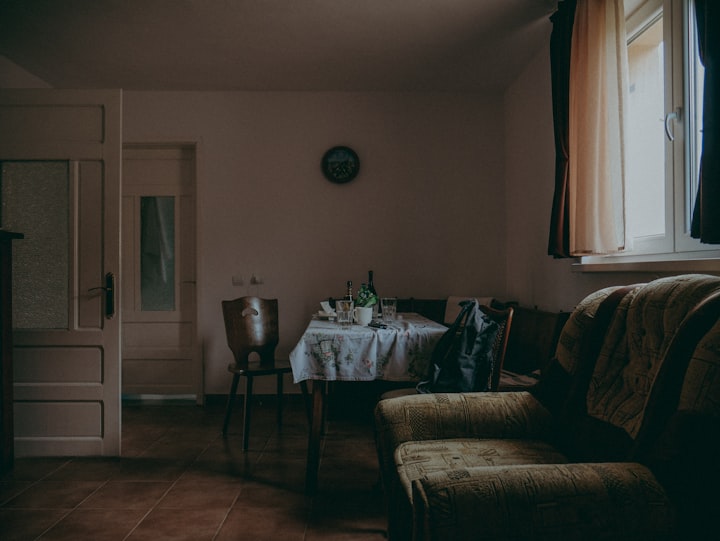To feel too much or nothing at all?
Movies and Series that explore feelings, depression, mental illness and sadness.

“Perhaps the only difference between me and other people was that I've always demanded more from the sunset; more spectacular colors when the sun hit the horizon. That's perhaps my only sin.”
That is coming from Joe, the main protagonist of Lars Von Trier’s Nymphomaniac, who was just saved from a savage beating by a man who is listening to hear her recount every single sordid detail of her erotic experiences, down to the last gritty detail.
The man who saved her is asexual, and therefore, is in his own mind without judgment and can listen to her story without much in the way of preconceived notions about her behavior.
Her behavior is self indulgent, cruel (toward herself and sometimes others), and innovative in her own detriment to find pleasure. She has a period of time where she cannot have pleasure, but ends up with Jerome, where she finds something similar to it anyway. She doesn’t believe love is real, but that it is merely, lust, with jealously added, and several times throughout the films two parts, we see a connection between her intense pleasure and feeling nothing at all.
A particularly difficult scene where her father dies in violent spasms and in despair for his wife who is terrified of hospitals(and refuses to be there, causing Joe to resent her mother), we get a scene where her father then dies—-and she immediately becomes sexually aroused. It’s a palpable sense of gripping pain, and she follows it up by expressing that she is then numb with depression afterwards. This isn’t just a random event, as Joe finds herself at one point making intense and passionate love with Jerome in an unmistakably odd coincidence, to which afterwards, she is incredibly distraught emotionally when she realizes she cannot feel anything anymore.
The savage and intense beatings with a man called K are of her own accord, which become routine in her resolve to reclaim her orgasms. These haphazard and dangerous elements culminate in her losing her relationship with Jerome and putting her son that they have together in danger by leaving him alone to see K once again.
This deep, pitting despair, to me was painful to watch— yet I had to finish it. It was in two parts, almost split down the middle, like a metaphorical axing of the viewer’s heart. Lars Von Trier doesn’t make films for us to enjoy, he gives us something scathing, raw, and over the top, but ultimately it drives something inside that we all sometimes have felt—-that empty pit of sorrow that is either self created or melded from your own experiences and relationships. This film represented, to me, a glimpse of how it feels to live life under a cloak of sensory overload, and I think it feels as suffocating as it feels exhilarating—as it feels terrifying.
This was a part of a “depression” trilogy that Von Trier created. I only saw Nyphomaniac and Melancholia.
Melancholia is a genius expression of extreme depression represented by extreme behavior. We sometimes do crazy things out of sheer exhaustion, out of sheer desperation, and this movie shows us this is true. It’s almost a bipolar episode wrapped up in two parts, one in manic form with the wedding with “Justine,” and the depression part with, “Claire,” and it shows the juxtaposition of both of these in clear contrast, yet they merge somewhere to show they do indeed share something: pain.
I have not seen Anti-Christ yet, but plan to, as these all meld together in complete form to show a anthology of pain that completes the director’s vision.
In the general vein of mental atrophy and dissociating mental illness, we have the fascinating online platform of Fat-pie.com—wherein lies the animations of David Firth.
His work has been largely based online, through YouTube, Newgrounds and his own website, Fat-pie.com, and though his works are also largely obscure, they have a definite following with those who know of him. His animation style is choppy, crackly, warm, and has the impression to me of a broken and cracked TV screen that only emits white noise and screeches every so often. But, I dearly love it. The dark and surreal nature of his subject matter often intermixed with comedy and drama leaves viewers feel disgusted at times, disoriented, yet oddly, at times, relieved and calmed.
David Firth shows us without telling us with exposition how mental illness feels. He gives us color and sound to show loss and betrayal, and anger and hatred—-not words and fancy set up scenes between characters. It may seem sloppy, short, and weird, but to people who deal with feeling desperately lonely, or depressed, or confused, it hits the mark quite well.
To pair these movies of Lars Von Trier (the depression trilogy) with the various works of David Firth’s animation shorts, can elevate your experience with multiple levels of expression and perspectives—-with just the right dose of terror and existential philosophy/angst.
Check out David Firth here:
https://www.fat-pie.com
About the Creator
Melissa Ingoldsby
I am a published author on Patheos,
I am Bexley by Resurgence Novels
The Half Paper Moon on Golden Storyline Books for Kindle.
My novella Carnivorous will be published by Eukalypto
& Atonement will be released this August by JMS Books
Reader insights
Nice work
Very well written. Keep up the good work!
Top insights
Expert insights and opinions
Arguments were carefully researched and presented
Heartfelt and relatable
The story invoked strong personal emotions






Comments (1)
I haven't seen Nymphomaniac yet, but I want to. I saw, loved, and own "Melancholia." What a great movie. "Melancholia" and "American Psycho" are two film my wife and I use as benchmarks for people. If you don't get "American Psycho," it's likely about you (horrific, shallow, materialistic types). If you don't get "Melancholia," chances are you're lacking in real angst.